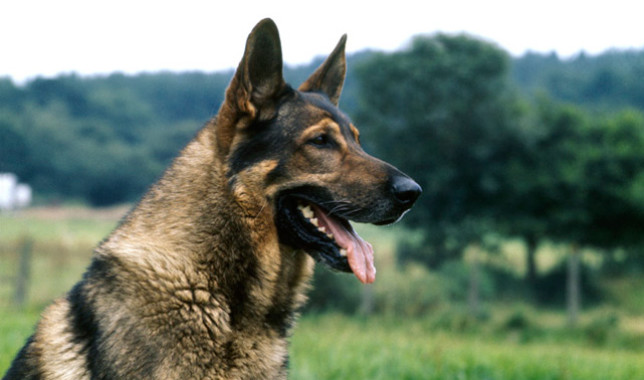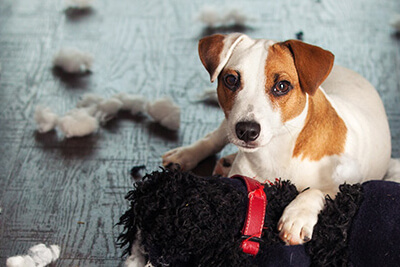
Nervous Dogs: What makes a dog nervous? Some dogs are very anxious and nervous, to begin with, while others are nervous due to their owners being stressed and anxious themselves. The environment that a dog is raised in can have a tremendous impact on their behavior and how they handle stressful situations.
Dogs don’t understand why their owners are stressed, sad, or angry, but they will react in many different ways. Some will bark, some will try to hide, while others may whine or even become aggressive out of fear. Let’s take a look at how to better handle these situations when they come up in your home:

How to Properly Handle Nervous Energy
I come across nervous dogs on a daily basis, and most of the time it is the owner who needs to be calmed down, not the dog! The way pet parents handle themselves can have a direct impact on how their nervous dogs react to their surroundings. For example, when an owner drops off her animal for a Vets visit and she is nervous—talking fast and generally acting anxiously—this nervous energy is definitely coming along with the pet.

What we must realize is that dogs are very intuitive, and our body language alone can show stress without us even saying a word. They notice when our body tenses up, and rapid movements (like moving your hands quickly, shaking your leg, or being unable to stand still because you're nervous) will catch their eye and let them know that something is wrong. Dogs can also sense stress or fear by using their keen sense of smell (they can detect when a person is sweating due to being anxious or afraid).
The best way to handle this situation is to try to calm yourself down and relax a little bit—sometimes easier said than done. In a veterinary waiting room, your vet will likely try to help you do this by reassuring you that everything will be okay (listen to them!). Then, the vet technician will let your dog calm down, either by placing him or her in a cage or putting him or her in one of the exam rooms. This gives them time to relax and to realize that they are not going to be harmed. Dogs that feed off of their owners’ nervous energy can be dangerous because once left alone with a technician or veterinarian (or groomer, dog-walker, etc.), they may become aggressive out of fear.

The simplest procedures, such as nail trims, can turn ugly fast if not approached properly. Some dogs are really good for their nail trims, while others have to be fed an entire bag of treats to get even one paw done. If the owners are present and they are stressed about their dog getting a nail trim, the dog will feel their nervous energy. It may work best for owners to step out of the exam room or have their dog taken to the treatment room to have his or her nails done. Most of the time, this will work and the dog will cooperate.
Creating the Right Environment
A veterinary visit is already a frightening place to most dogs, so creating a relaxed environment with calm voices and quiet places for them to rest when they are hospitalized will help them properly handle their stress.
Owners can also work to create a calming environment at home, which will help keep their dog calm when going to the vet or another high-stress environment. Most stress for owners comes from the fact that their dog doesn't listen and can quickly spiral out of their control. They don’t know how to approach the situation, so they have anxiety that they pass on to their dog.
If your dog has a hard time with commands, you need to change your training approach. Recognize the tone of voice that you use when training your dog and gauge their reaction to it. If you’re unable to adjust your training relationship with your dog on your own, bringing a trainer into the situation can do wonders. The trainer will show you how to properly train your dog. Training is important, as it lets our pets know that we are in control and that they are safe (and, therefore, have nothing to be nervous about). But you have to approach it in a way that will make your pet feel comfortable and safe.
When we have control of our own emotions, our pets will have better control as well. This is a behavior that needs to be learned through repetition. It takes patience as an owner to talk and act calmly around our animals, regardless of how frustrated we may become. The keys to dealing with a nervous dog are slow movements and talking to them to let them know you are on their side. In the end, if we learn to control our own stress and anxiety, our pets will be healthier and happier as a result.
Play classical music to your dog as this will help calm them down in the house

